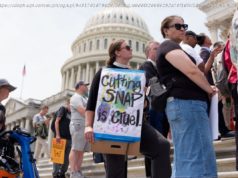United Kingdom infant Charlie Gard’s parent’s announced today their baby boy has died, just a week short of his first birthday.
United Kingdom infant Charlie Gard’s parent’s announced today their baby boy has died, just a week short of his first birthday.
Charlie had a rare disease for which there is no known cure. His story captured the attention of the world after U. K. authorities fought Charlie’s parents over the right to travel to the United States for an experimental treatment. Myriad hospitals, doctors, and charities across the world offered to care for Charlie after his U. K. hospital refused him experimental treatment, for which they had raised millions privately to fund themselves. By delaying Charlie’s parents the ability to seek medical treatment overseas, U. K. authorities effectively ran out the clock on the young boy’s life.
Charlie’s fight for life unfolded in the public eye at the same time health care policies are being debated in the United States. Many pointed out that Charlie Gard’s story embodies the dangers of government-controlled medicine.
When life-saving treatments are expensive, which is typical for experimental treatments until they are repeatedly tested then refined, government has a vested interest in denying them to people whose odds of improvement are low, to save money — which is exactly what happened to young Charlie. This reduces the constant experimentation necessary to make medical advances possible, which is why the United States is the world’s leader in medical innovation, although that edge is slipping thanks to our increasingly government-driven health-care economy.
Sadly, this isn’ t the first time a baby was denied life-saving treatments in favor of a warped political ideology, and it won’ t be the last. As Caroline D’ Agati wrote, it’s reminiscent of twentieth-century eugenics movement — when science demanded society root out its weaker members for the advancement of the human race.






